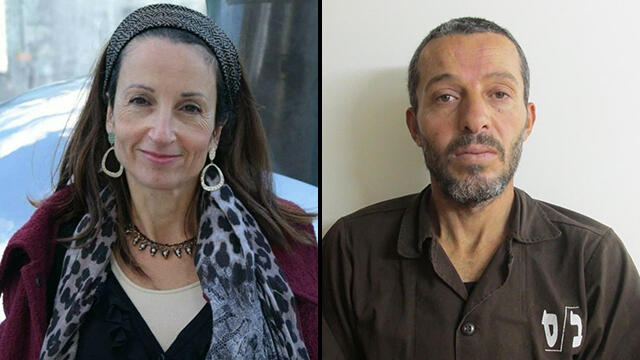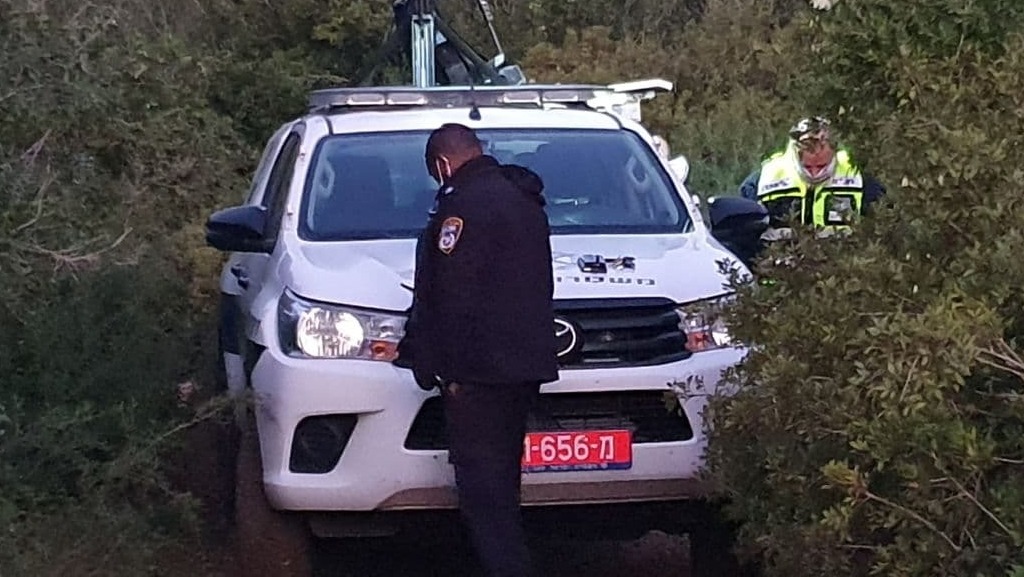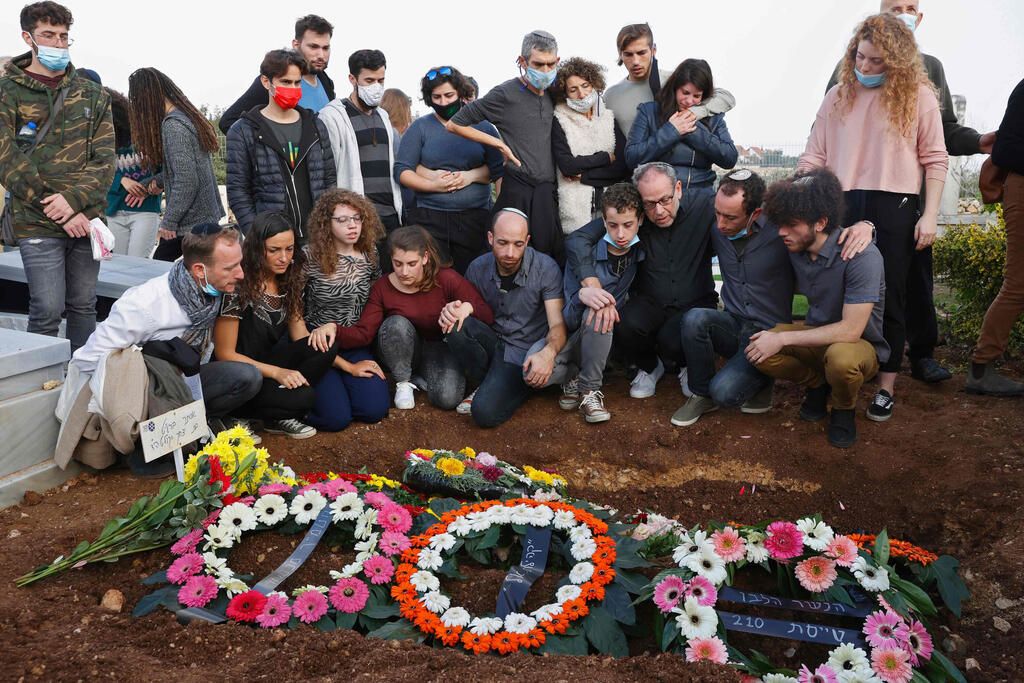Getting your Trinity Audio player ready...
A military court on Thursday has indicted the Palestinian who admitted to murdering 52-year-old Esther Horgen in a terror attack in December 2020.
The beaten body of Horgen, a mother of six from the settlement of Tal Menashe, was found a day after she went missing during a jog in the woods near her home.
5 View gallery


Muhammad Mruh Kabha has admitted to killing Esther Horgen in December
(Photos: Horgen family, Shin Bet)
Muhammad Mruh Kabha, 40, from the West Bank village of Tura al-Gharbiya near Jenin, was arrested four days later. The Shin Bet security service said he admitted to killing Horgen and later reenacted her murder at the scene.
According to the indictment bill, which included six clauses, Kabha was collecting mushrooms in the forest when he saw Horgen.
After their gazes crossed, Horgen began running and Kabha chased after her, managing to catch her after a short pursuit.
Kabha then grabbed her hands as she screamed, pushed her on a pile of rocks and started smashing her head with one of the rocks until she stopped moving.
The Palestinian then returned home to shower and change clothes and fled to the mountains.
Kabha told the Shin Bet that he had snuck into Israeli territory through an opening in the security fence, with the intent to carry out a terrorist attack against Israelis in retaliation for the death of a friend of his who was serving a prison sentence in Israel.
The indictment bill noted that Kabha weighed several options to carry out the attack including a shooting attack on Israeli security forces.
Kabha conducted several observations on security forces near the border fence but gave up on the idea due to the high cost of a weapon.
About a month later, he decided that Reihan Forest near the settlement of Tal Menashe was an ideal location to carry out an attack against Israelis.
The High Court of Justice on Wednesday approved the partial demolition of Kabha's home.
Kabha's family had petitioned the court against the plan to demolish the upper two floors of the three-story home, claiming that the confessed terrorist's wife and three children lived on the second floor.
The family said that they did not know of his plans to carry out a terror attack and could not have prevented him from doing so and argued that the demolition would be an act of revenge and punishment therefore illegal.
Furthermore, the family told the court, collective punishment was a violation of international law and even of Jewish law.
They also claimed that home demolitions were not a deterrent but instead actually fostered resentment that led to further attacks.
The three-judge panel, however, ruled two to one that there were no grounds to intervene in the IDF plan to partially raze the home.
"The demolition of terrorist homes is a sensitive issue," wrote Judge Yitzhak Amit as he rejected the family's petition along with Judge Daphne Barak-Erez.
"Demolishing a terrorist's house is not a means of punishment, and there is no revenge involved as a response to the attack. The demolition of a terrorist's house is used solely as a deterrent and not as a means of punishment," Amit wrote.
Writing the minority opposition to the decision, Judge Anat Baron said she believed that the second floor of the house, where the wife and three children lived, should not be demolished, but only the third floor that was used by him.
Yael Freidson contributed to this story.





